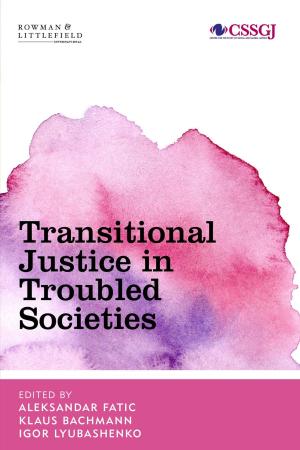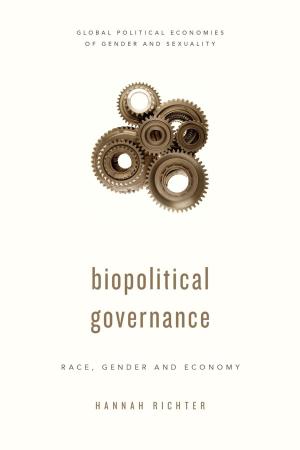Gender and Informal Institutions
Nonfiction, Social & Cultural Studies, Social Science, Gender Studies, Sociology, Political Science| Author: | ISBN: | 9781786600042 | |
| Publisher: | Rowman & Littlefield International | Publication: | May 25, 2017 |
| Imprint: | Rowman & Littlefield International | Language: | English |
| Author: | |
| ISBN: | 9781786600042 |
| Publisher: | Rowman & Littlefield International |
| Publication: | May 25, 2017 |
| Imprint: | Rowman & Littlefield International |
| Language: | English |
Informal norms and political practices can act to facilitate or block changes to formal rules, with important consequences for efforts to promote gender equality. In this book, leading scholars develop sophisticated analytical frameworks and provide detailed empirical knowledge to further our understanding of the gendering of informal institutions.
The book begins by assessing our current theoretical and empirical knowledge and outlining the remaining gaps in our understanding around the way gender interacts with informal institutions. It takes up the challenges of gender equality in informal institutions though a feminist institutionalist lens. The empirically based chapters explore the role of informal institutions in three areas of concern for feminist scholars: political recruitment; the executive; and policy and practice; and examine the practical and methodological challenges of researching informal institutions. Using the insights generated in the volume, the final chapter develops a research agenda for future work on gendering informal institutions, considering the potential to design or alter informal institutions, and of different approaches and methodologies.
Informal norms and political practices can act to facilitate or block changes to formal rules, with important consequences for efforts to promote gender equality. In this book, leading scholars develop sophisticated analytical frameworks and provide detailed empirical knowledge to further our understanding of the gendering of informal institutions.
The book begins by assessing our current theoretical and empirical knowledge and outlining the remaining gaps in our understanding around the way gender interacts with informal institutions. It takes up the challenges of gender equality in informal institutions though a feminist institutionalist lens. The empirically based chapters explore the role of informal institutions in three areas of concern for feminist scholars: political recruitment; the executive; and policy and practice; and examine the practical and methodological challenges of researching informal institutions. Using the insights generated in the volume, the final chapter develops a research agenda for future work on gendering informal institutions, considering the potential to design or alter informal institutions, and of different approaches and methodologies.















